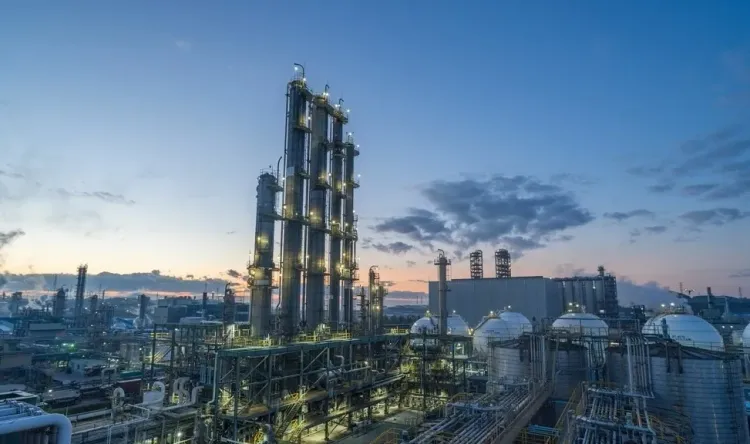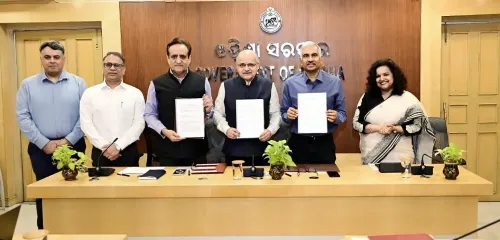What Steps is S. Korea Taking to Support 'Voluntary' Restructuring of its Petrochemical Industry?

Synopsis
Key Takeaways
- Government supports voluntary restructuring of the petrochemical industry.
- The plan aims to reduce oversupply and enhance competitiveness.
- Key principles include simultaneous restructuring and self-rescue efforts.
- Financial aid and tax incentives are part of the support package.
- Focus on producing high-value eco-friendly products.
Seoul, Aug 20 (NationPress) The government is set to aid the struggling petrochemical sector's 'voluntary' restructuring initiatives, targeting the widespread crisis caused by a global oversupply, as stated by the industry ministry on Wednesday.
The roadmap for the restructuring of the petrochemical industry is designed to address oversupply, transition towards high-value specialty products, enhance corporate fiscal health, and mitigate the restructuring's effects on local economies, as reported by the Ministry of Trade, Industry and Energy, according to Yonhap news agency.
The government's assistance for the restructuring is based on three key principles: the 'simultaneous' restructuring of three petrochemical complexes, the necessity for 'sufficient' self-rescue efforts and a 'feasible' business restructuring plan from companies, and the creation of a 'comprehensive' government support package, the ministry detailed.
This plan was revealed during a meeting of economy-related ministers focused on enhancing South Korea's industrial competitiveness, amid growing fears that local petrochemical firms may not endure the ongoing crisis triggered by sluggish global demand and an influx of inexpensive Chinese products.
A recent report from the Boston Consulting Group cautioned that if the current downturn continues, nearly half of South Korea's petrochemical companies could face extinction within the next three years due to their fragile financial standings.
Post-meeting, Industry Minister Kim Jung-kwan engaged with petrochemical industry officials, culminating in an agreement for government backing of companies' voluntary restructuring efforts to enhance sector competitiveness.
In pursuit of this goal, the petrochemical industry has pledged to reduce capacity by up to 3.7 million tons at naphtha cracking centers and pivot towards producing high-value, eco-friendly products.
According to the agreement, petrochemical companies will prepare and submit a detailed business restructuring plan, inclusive of strategies to enhance competitiveness and improve financial structures, by year-end, as per the ministry's guidance.
Following this, the ministry will review the plans to formulate a support package that encompasses financial aid, tax incentives, research and development (R&D) support, and regulatory reforms for the firms.
The government is also contemplating designating Seosan, a central city housing one of the nation's three major petrochemical complexes, as a special zone necessitating proactive measures against industrial crises, it was noted.
The southwestern city of Yeosu, which also hosts a petrochemical complex, was designated as such a zone in May.









